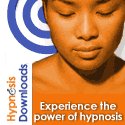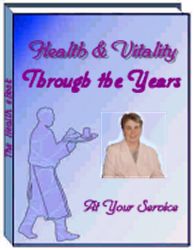Essential Oils are the concentrated extracts from plants which have been commonly used in today’s culture for aromatherapy. But if youstudy the record of essential oils you will find that they have been in use for thousands of years for therapeutic and personal reasons.
The Egyptians used essential oils considerably. There is evidence that they not only used them for aromatherapy and aromatic herbs, but also for use in their faith, makeup, and medicinal purposes. In this same time the Chinese were also using herbs and fragrant plant life for both personal and medical reasons. Actually, the use of herbs and essential oils, in Chinese culture, have continuously been in use. Unlike our Western society.
The medicinal wisdom of the Egyptians was adopted by the ancient Greeks – and the most well-known physician of that age, Hippocrates (c.460 – 377 BC) was a firm supporter of treating the patient holistically and incorporated aromatherapy massage as a treatment.
When the Romans dominated the Greeks, they realized the benefits of the Greeks health system and rapidly adopted the use of essential oils into their society. They were great believers in cleanliness to further wellbeing but also the use of aromatherapy and the influence of fragrances.
Following the fall of the Roman Empire and the appearance of the Dark Ages, society largely neglected the education of any of the earlier societies. Excluding the Arabian empire which saw the value of this wisdom and incorporated it into their society. They not only drew on the Greek and Roman wisdom, but also the medical teachings of China and India.
It is the Persian doctor Avicenna (980 – 1,037 AD) that is being accredited with perfecting the distillation of essential oils, which is still used in today’s process.
In western culture it was the monks who tended after the sick and kept some herbal medical wisdom alive. At the same time when herbal medicine was practiced by a village herbalist it would lead to their persecution as witches.
The Church deemed bathing as wicked, so the use of essential oils was mainly to mask the scent of a populace who only washed once or twice a year. Today’s researchers are starting to question if the oils used had anti-bacterial and anti-pesticide properties, which didn’t end disease, but may have slowed its progress.
The Renaissance saw a swing back to the holistic healing of illness and the most noteworthy of physicians was Paracelsus (Phillipus Aureolus Theophrastus Bombastus von Hohenheim 1493 – 1541). It was Paracelsus who pioneered the use of chemicals and minerals in medicine. He is the inventor of laudanum, an opiate which was extensively used for pain until the 19th century. It was his belief that there was wisdom in folk medicine, much to the loathing of his contemporaries, yet he was one of the few physicians of his time who had success in curing leprosy.
Even into the 19th and early twentieth centuries, any medical doctor who thought essential oils were of great medicinal value was deemed a quack. In 1930, Dr Edward Bach a consulting physician and a educated pathologist and bacteriologist became disenchanted with orthodox medicine and developed a method for treating disorders with the essence of flowers. Many of his methods are still in use in our day.
Aromatherapy, as we understand it, was first used in 1937 by the French chemist Rene Maurice Gattefosse. He was not a natural health believer but was fascinated in the properties that essential oils exhibited.
In 1910, he burnt his hand badly. As there was nothing else handy he treated it with pure lavender oil. He was astonished when the pain was immediately eased and the hand healed without any infection and only a minor scar. This accidental breakthrough led him to do additional research, where he discovered that minute amounts of essential oils were absorbed into the skin and interacted with the body.
As a result of Gattefosse’s experiments, Dr. Jean Valet used essential oils to treat injured soldiers during the second world war with great success.
In the 1950′s Marguerite Maury started mixing essential oils in vegetable oil and massaging it onto the skin. She was the first known person to use essential oils based on each individuals needs.
In the late 1970′s and early 1980′s the use of essential oils and aromatherapy became a major part of alternative and holistic health systems.
In the 1990′s, the use of aromatherapy has become extensively used for stress relief and relaxation.
In today’s time, there is a rebirth of holistic medicine as people start to question whether cures may be found in plants. It is amazing that as our knowledge of the benefits of essential oils develop, we are incorporating a lost medicine into our every day lives.
Grab free hints for height weight calculator – this is your own knowledge pack.



